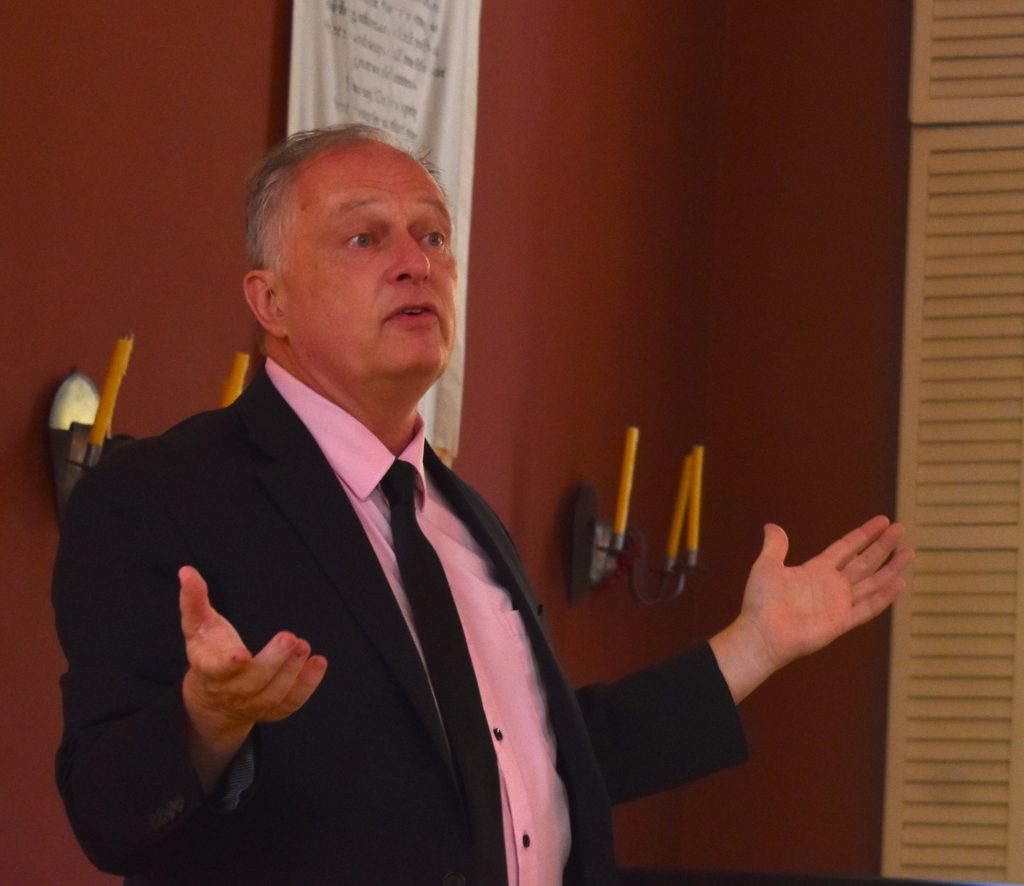
The concert opened with Prelude and Fugue in D major, BWV 532 by J.S. Bach (1685-1750), which is thought to have been composed during Bach’s later years at Wiemar (1708-1717) where he began to leave behind his ardent obsession with Vivaldi and Buxtehude as he found his own voice and style, yet the composition was not published until 1833. Preludes were secular works composed for important social events like state banquets. This work remains famous for its serpentine fugue structure, flamboyant insouciance, and witty virtuosity in the punch-line comic conclusion. Tritle’s fingers flew across the keyboard with lightning dexterity, his feet peddling pell-mell, capturing the personality of the improvising composer himself.
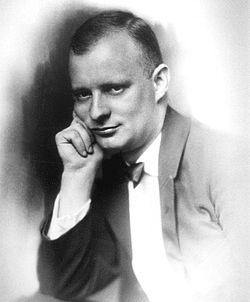
They next performed a new arrangement of Three Easy Pieces, Op 8 (1938), an early work by Paul Hindemith (1895-1963), a refugee from the Nazi regime who taught at Yale in the 1940s. This popular composition was originally written for cello and piano, yet here played by cello and organ, which endowed the work with a more somber tone.
Sonata in A major, Op. 65, no. 3 by Felix Mendelssohn, the third of a series, was commissioned, composed, and published in England in 1845. In Berlin, Mendelssohn had spearheaded a public J.S. Bach revival with the assistance of his great aunt Sarah Levy, a harpsichordist who had studied with one of the sons of J.S. Bach, Wilhelm Friedemann Bach. This composition, a paraphrase of Psalm 130 (“From deep affliction I cry out to You”), was based upon one of the hymns written by Martin Luther, composed in 1594. This work demands a well-tuned organ and excellent pedal-boarding, which those with a subtle ear might appreciate. There is some irony here: at this point in England, there were hardly any decent pedal boards on organs; this work inspired a pedal board revival in England!
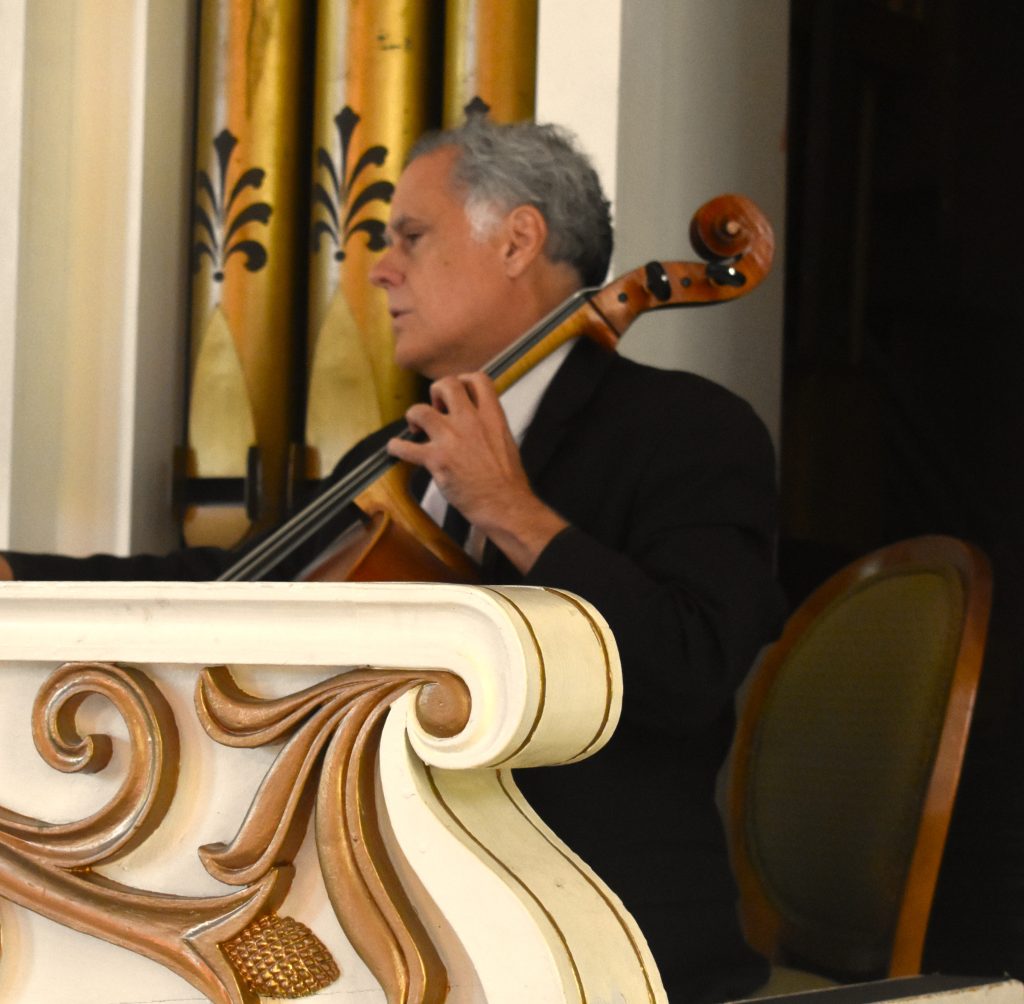
Sonata for Cello in E minor, RV 40, by Antonio Vivaldi, the fifth surviving cello concerto, featured background organ arrangement by Kent Tritle, which enhanced the presentation and mood. Most of Vivaldi’s sonatas for solo instruments have been lost. They were often commissioned for weddings (violin) or funerals (cello). This sonata in four movements had binary aspects. The Largo opening offered a lament. My ear and heart inform me that this was likely a lament for Vivaldi’s father, a concert violinist and orchestral concert master. Antonio began his musical career by playing violin in his father’s orchestra when he was thirteen. The following cheerful memories in the Allegro painted his youthful escapades and joy in learning to play music and becoming successful. Here, the mellow and sumptuous tone of Arthur Fiacco’s antique cello excelled.
The second Largo was a lament for his mother’s death. The moderately cheerful Allegro painted his mother’s character, especially her appreciation of the comic aspects of life. In sound and texture, this sonata is both personal and distinctive among his other works. On cello, Arthur Fiacco was elegantly sonorous and warm and accurate with an emotional slant. (It remains possible that this may have been a commissioned work for a fellow musician whom Antonio knew.)
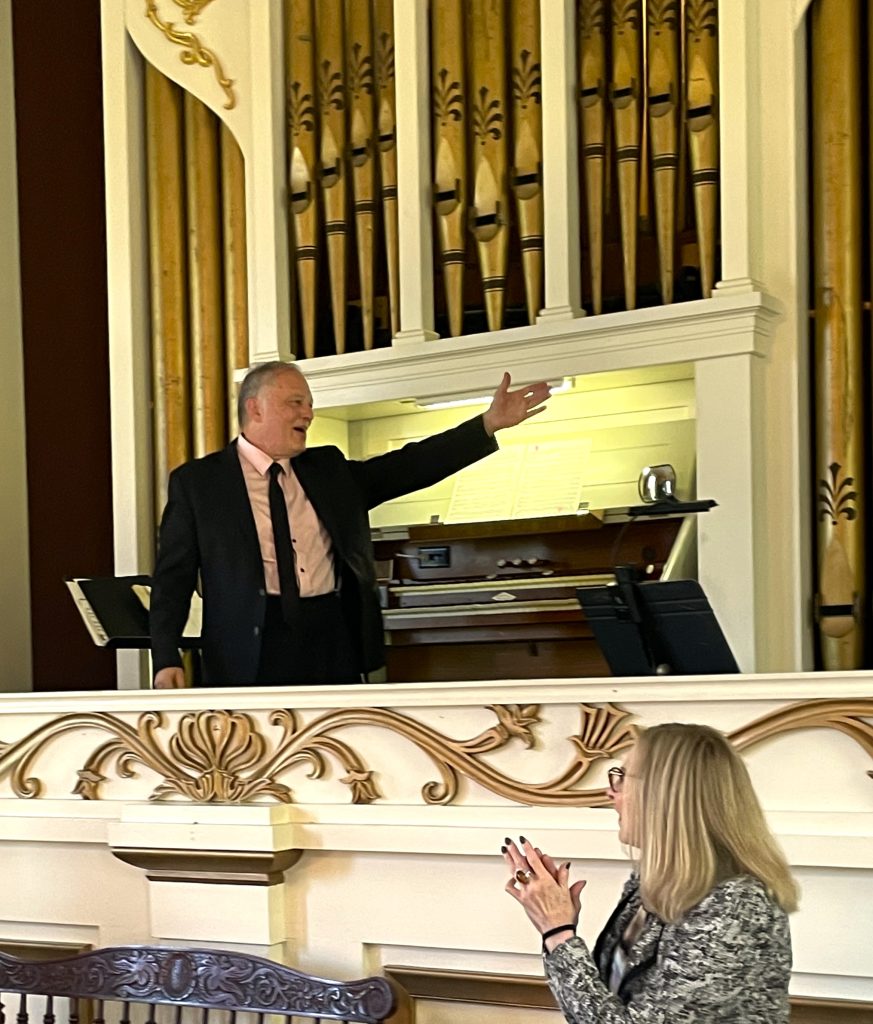
Chorale Prelude, Op. 122, No. 3 (1896) by Johannes Brahms, one of eleven choral preludes written upon the death of his friend Clara Schumann, was published shortly after the death of Brahms in 1902. This was a musical reminder about living in difficult times when the world appears to be too much for us.
But the concert did not demand sorrow, as the reversal Finale was the joyous Symphonie for Organ, No.1 in G minor by Charles-Marie Widor (1844-1937). Few organists can play the compositions of Widor, and here it was performed to transcendent, wondrous perfection! Yes, there is rejoicing in the moment at Smithfield Church.
For an encore, the duo played their arrangement of Romance by Claude Debussy. Once more, the tuneful lines of the cello were lit heavenward from the organ as they melded in unity and sweetness.
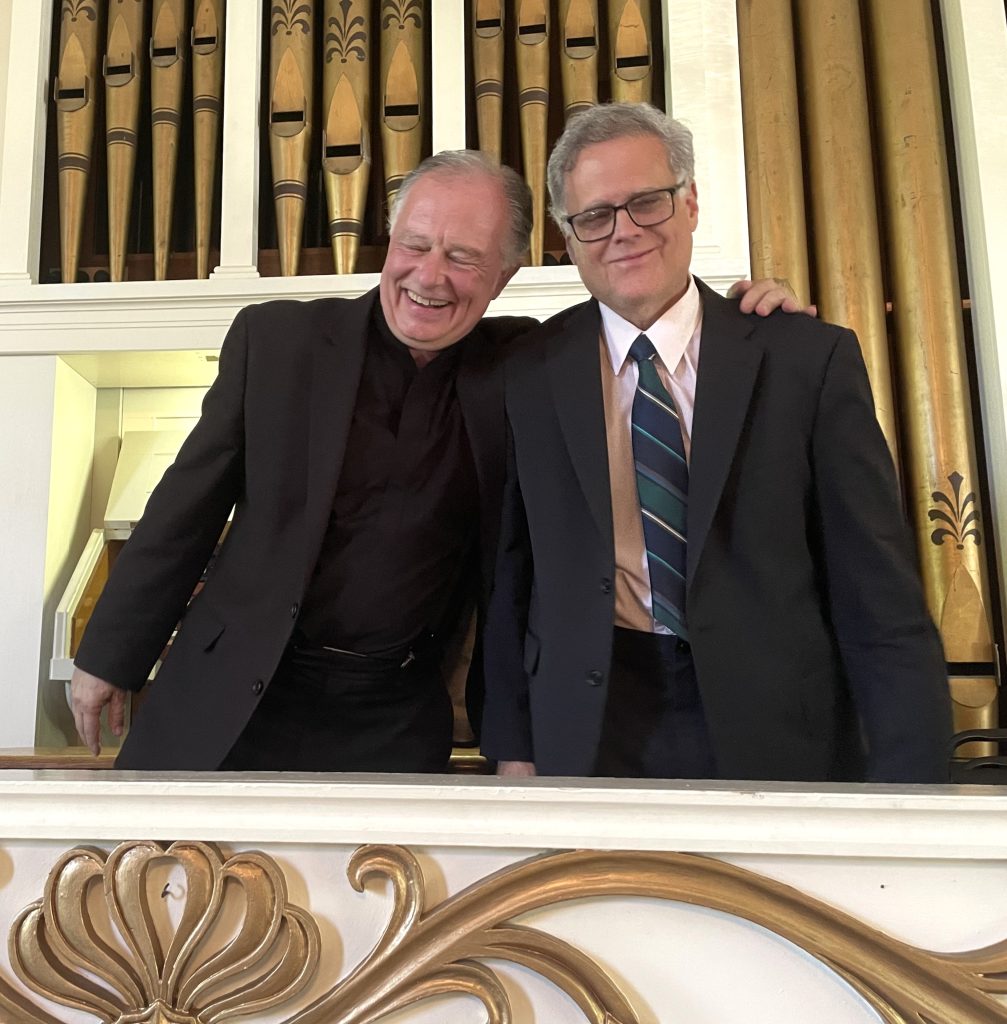
This benefit concert was produced by the Oratorio Society of New York.